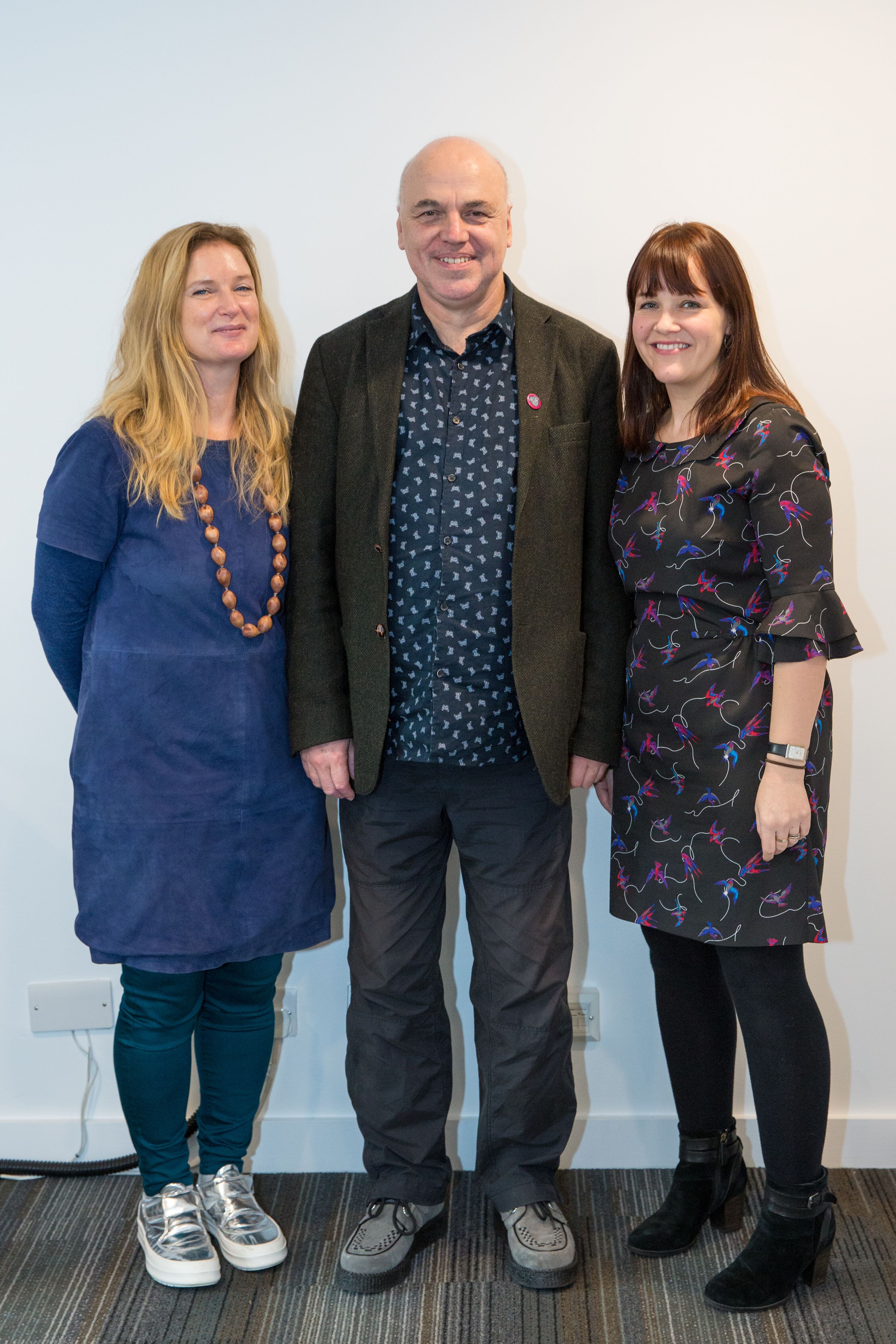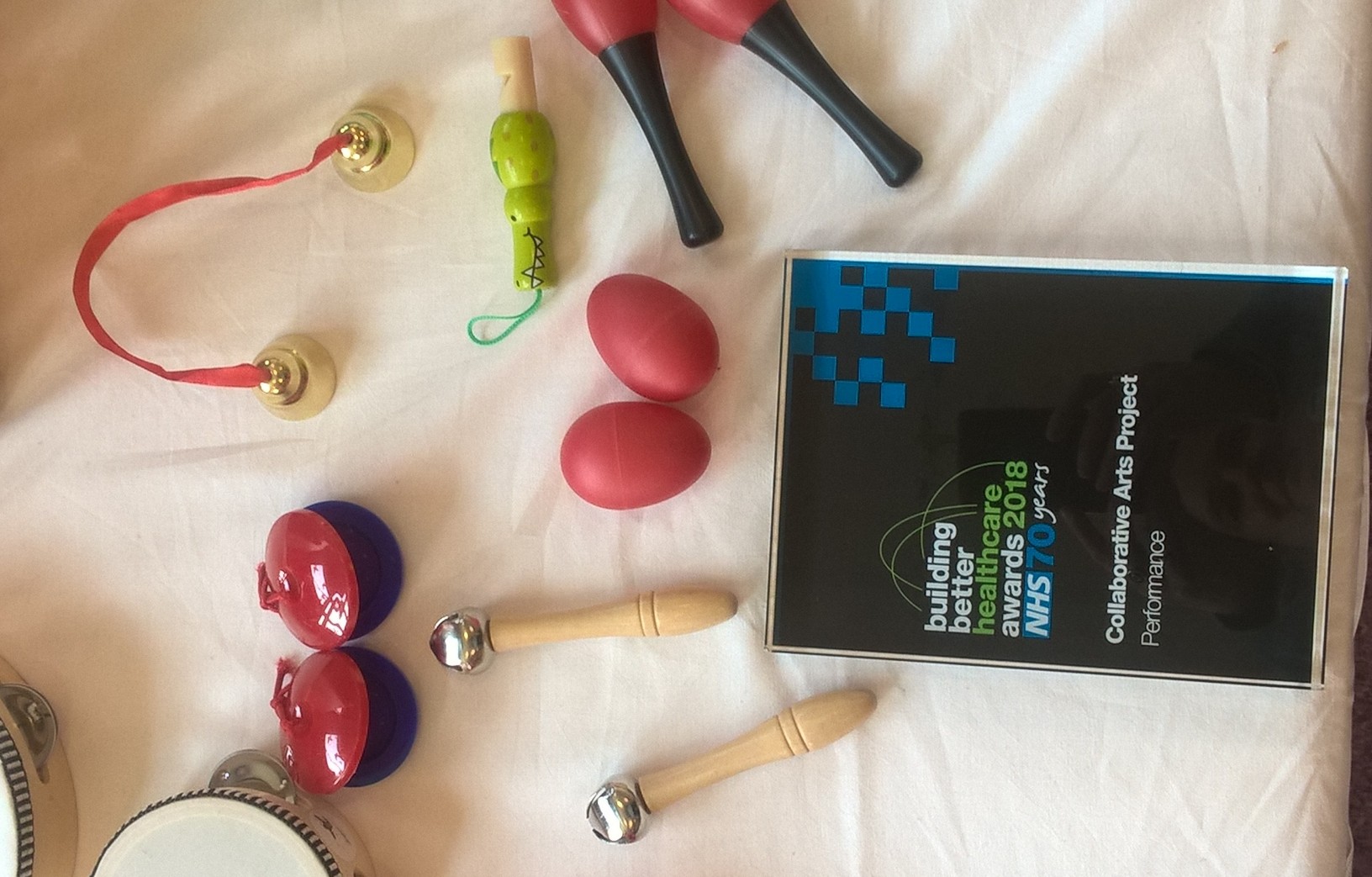At the 2018 Building Better Healthcare Awards, LIME Music for Health won the Award for Best Collaborative Arts (Performance) for its Songbirds Project. Four months on, we look at how the accolade is helping to take the innovative music programme to the next level.
Described by the BBH Awards judging panel as a ‘clear and standout winner’ at last year’s ceremony, the Songbirds Project is a significant strand of LIME Music for Health’s overall music programme at The Royal Manchester Children's Hospital.
Called Medical Notes: Music at the Heart of Life, it provides tailor-made music-making on the wards and at the bedside to assist with the isolation, stress, and anxiety experienced by children as a result of long-term hospitalisation.
Led by co-directors and music for health specialist musicians, Rosalind Hawley and Mark Fisher, it provides opportunities for social interaction, stimulation, and relief from anxiety, pain and stress; and increases confidence and self-esteem; empowering patients and their families in an environment where they often feel powerless.
Speaking to BBH this week, Hawley said: “We are experienced musicians used to working in hospitals, but we wanted to focus our attention on one ward – Ward 83 – and get arts embedded so that it became a part of hospital life.”
We wanted to focus our attention on one ward – Ward 83 – and get arts embedded so that it became a part of hospital life
She added: “The ward we work on is for children with long-term rehabilitation needs. Some have been in hospital from birth and have never been home. Others have suffered a serious illness or injury and their worlds have been turned upside down.”
At any one time, the ward may house up to 10 children with very-specific and wide-ranging needs.
“In the beginning it was about seeing how music could fit into hospital life.
“We wanted to support things like physical therapy, helping children to have a voice and to communicate.”
Many of the children on the ward are on ventilation, so communicating verbally is not possible.
“Mark is a composer, so Songbirds is about creating sound and music that can reach each individual,” said Hawley.
“Communications may be as small as a nod or a vocal sound, but they are there.
“Some children make little mouth gestures and one boy who can’t move uses his face to conduct us; telling us to speed up or slow down or increase or reduce the volume.
“It’s all about using music to focus on what the child can do rather than what they can’t.”
Since first launching, Songbirds has become embedded into everyday life on the ward.
And, six years on, with the BBH Award under the belts, they are looking to the future.
Hawley said: “One of the biggest challenges for any hospital arts programme is for people to see it working.
“Because it’s a long-term project, people get to see the impact it has.
“Songbirds has gone from being a project strand to taking on its own identity.”
Following the BBH Award, the duo is now planning to expand the initiative by taking it into the community to reach children once they are discharged from hospital. They are also looking at the possibility of taking it into adult services and special needs settings.
It’s all about using music to focus on what the child can do rather than what they can’t
In addition, there are plans to combine it with other artforms such as storytelling and puppetry.
“We have big aspirations for Songbirds,” said Hawley.
“Winning the award for us was a fantastic achievement and we are now planning to grow it further.
“For us the music fills that gap in holistic healthcare where patients may not have a voice themselves.”
She added that, on the children’s ward, there have been reports of a decrease in blood pressure and an increase in oxygen saturation rates, a measurable clinical result.
Commenting on this Dr Stuart Wilkinson, a consultant respiratory paediatrician and LTV lead on the ward, said: “One thing we do when we long-term ventilate these children is to put a tracheostomy in them to provide them with ventilatory or respiratory support. As soon as you do that you take away their voice.
“We walk around every day talking and they can’t respond or interact in that manner.
“From a music perspective, that’s something they can communicate with their parents or carers, with staff and with their families, in a way that we can’t by just talking to them.

Winning the Building Better Healthcare Award has prompted the team to look at further expansion of the programme
“You really see the kids wake up and come alive and enjoy the environment when there’s music playing and they engage and interact.
“It’s fantastic. We notice a big difference with the kids we have here on the unit.”
Therapeutic play specialist, John Smith, adds: “At a time when technology seems a controlling factor of everyday life, music remains a constant utterance that has a long-lasting effect with everyone in one way or another. “Songbirds, for me, focused on what really affects the individual. It might be the setting, the visual aspect, the tone, the speed, the volume or the vibration of the total interaction; the way it can make a difference with each of the patients, whether it be in mood, temperament, blood pressure, breathing or simply a smile, a sound, a tap of a foot, a drum of their fingers or the use of an instrument.
“It’s given me a deeper understanding and a useful tool to use in my own work and it has enhanced the lives of all participants consciously or subconsciously.”
And it has impacted parents of patients, too, who often spend many hours a day on the ward.
One said: “It helps us connect with our daughter. The whole family has joined in music-making with Mark and Ros, and I know they have had a big impact on other families too.”
Songbirds is funded by the Youth Music charity. Its chief executive, Matt Griffiths, said: “The Songbirds Music for Health Programme is highly regarded and of national significance.
I was thrilled that Songbirds won a Building Better Healthcare Award – it was really well deserved and helps to shine a light on this vital work and the difference it makes to children and young people at a challenging time in their lives
“It plays a central role in our growing portfolio of music-making programmes for children and young people while in hospital.

Music has been found to lower blood pressure and raise oxygen saturation levels
“The team is also committed to developing the workforce encouraging a high level of reflection to really understand the impact of the work and the personal, social and musical outcomes it provides for, not only the patients, but their families too.
“I was thrilled that Songbirds won a Building Better Healthcare Award – it was really well deserved and helps to shine a light on this vital work and the difference it makes to children and young people at a challenging time in their lives.”
For information on the programme contact Kate Catling, project manager, at katecatlingfreelance@gmail.com.





